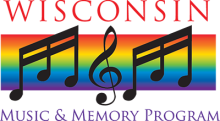Dementia Care: Dementia-Friendly Communities
The people of Wisconsin are coming together to support their families, friends, and neighbors living with dementia. Learn more about ways you can support dementia-friendly communities.
The toolkit
The Building Dementia-Friendly Communities Toolkit is a guide for getting started on dementia-friendly community efforts.
These handouts outline ways that community members can support the effort. Find information for groups such as:
- Dentists, P-01269A (PDF)
- Faith communities, P-01269B (PDF)
- Grocery stores, P-01269C (PDF)
- Law enforcement and first responders, P-01269E (PDF)
- Pharmacists, P-01269G (PDF)
- Restaurants, P-01269H (PDF)
Aging and disability resource centers
If you want to help your community become more dementia-friendly, you can contact your local ADRC. ADRCs are welcoming places that provide information on programs. They help people understand available care options. Local dementia care specialists also help coordinate dementia education, support, and resources.
Memory cafes
Memory cafes are social gatherings for those with memory loss or dementia and their caregivers. The get-togethers happen in places such as coffee shops and libraries. It is important for people living with dementia and their caregivers to socialize without fear of embarrassment from the stigma around the symptoms of dementia. Memory cafes offer an opportunity to meet new people or to visit with friends in a place where all can feel comfortable.
SPARK!
SPARK! helps people with dementia visit and enjoy museums across the state of Wisconsin. The program offers special days and times for people with dementia and their families. They can enjoy all of the cultural experiences of a museum visit at a comfortable pace.
Music & Memory
The memories and feelings that stem from a person’s favorite music remain strong for people living with dementia. The Music & Memory™ Program has shown how an individual’s favorite music can have a positive effect on their mood and how they engage with the people around them.
Wisconsin school curriculum
The state has created a unit on brain health for middle and high school teachers. Use it to teach students about brain health, dementia, and advocacy skills.
Around 23% of caregivers for those with dementia have a child living with them. Children want to understand dementia and they want to help.
Dementia cannot be ignored in the workplace. Wisconsin has an estimated 580,000 family caregivers. Sixty-three percent of those caregivers report they have difficulties in balancing caregiving and work. Nationally, caregiving costs employers an estimated $25 billion each year in lost productivity. However, with support, caregivers can manage both their caregiving and their work. Becoming a dementia-friendly employer can help attract quality candidates, reduce turnover costs, and improve productivity.
Education
Employers can use employee surveys to understand the needs of employed caregivers. They can also send a letter to employees to provide information and resources. Employers can offer educational programs during lunch or wellness events. Guest presenters may be arranged through local ADRCs or other organizations.
Resources for caregivers
Employers can connect employees with resources, such as their local ADRC. They can provide information about the Wisconsin Family and Medical Leave Act. Employers can also offer flextime, work-from-home, job-share, and other benefits to create space for caretaking responsibilities. They can also host caregiver support groups and provide opportunities for open discussion.
Other resources for employers
Need more information about dementia?
Stay up to date on the latest news about Alzheimer’s disease and other dementias. Join our email list.
Questions about the State Dementia Plan? Email dhsdementiawebmail@dhs.wisconsin.gov.

